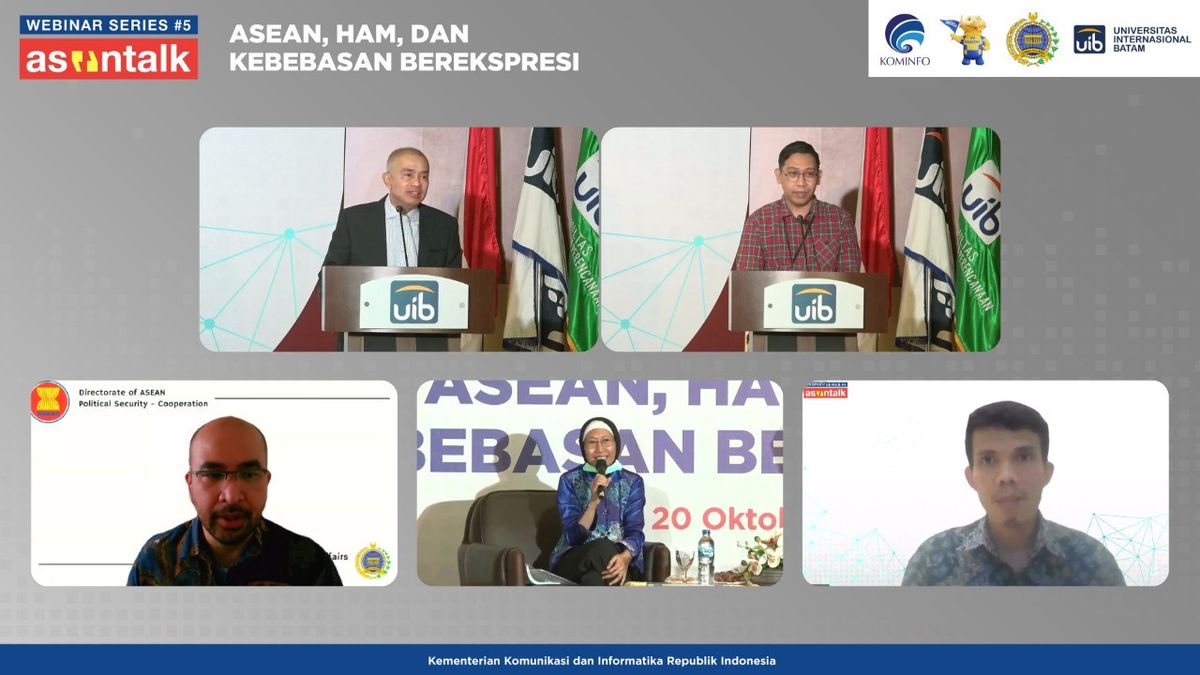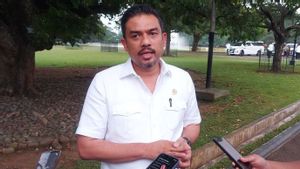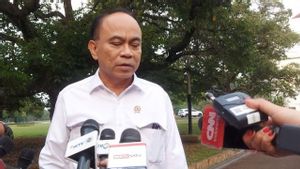JAKARTA - Coordinator of Legal Information and Communication and Human Rights, Ministry of Communication and Informatics, Filmon Warouw said, freedom of expression is a fundamental right recognized by the state.
"As a state of law, Indonesia has guaranteed freedom of expression since the beginning of independence through the 1945 Constitution of the Second Amendment, namely in Article 28 E paragraphs 2 and 3," he explained in the Webinar Series #5 ASEAN Talk: ASEAN, Human Rights, and freedom of expression in Batam, in a statement received in Jakarta, Monday, October 24.
Indonesia itself already has the Electronic Information and Transaction Law (UU ITE) which is expected to keep digital space cleaner, healthier, ethical, and can be used productively.
He revealed that the challenges in maintaining freedom of opinion did not only occur in Indonesia, but other ASEAN member countries also experienced the same thing.
"ASEAN actually ratified the Declaration on Human Rights on November 18, 2012, which in Article 23 in the declaration regulates the right to express opinions and expressions," he explained.
However, Filmon added, the practice or implementation of freedom of opinion and expression in several ASEAN member countries has significant differences.
He also hopes that this Webinar Series ASEAN Talk event can increase public understanding regarding the basic rights of expressing opinions wisely and understand the current conditions related to freedom of expression on a broader scale in the ASEAN region.
This webinar was opened by the Chancellor of Batam International University, Iskandar Itan, who said that the state must be present in protecting its citizens affected by negative things related to freedom of expression.
Starting the first session, the Deputy Director for Political Cooperation and Security at the Ministry of Foreign Affairs, Irwansyah Mukhlis said, even though Indonesia already has guarantees of freedom of expression, it also needs restrictions that are in accordance with the national context.
He argues that freedom of expression is guaranteed both online and offline. In fact, according to him, freedom of expression offline must also be applied online.
Internationally, two resolutions have begun to be formed, namely promotional resolutions on the internet and Rights to Privacy in Digital Age.
"We are advancing the so-called freedom of expression not only domestically but also at the ASEAN level. We are doing it through the Ministry of Foreign Affairs (Kemenlu) and the ASEAN Intergovernmental Commission on Human Rights (AICHR)." he said.
In the next session, the Head of the Legal and Cooperation Team, Directorate General of Informatics Applications at the Ministry of Communication and Information, Josua Sitompul said that freedom of expression is subjective and a topic that can be a controversial problem.
There are many forms of freedom of expression such as verbal and acts. In addition, freedom of expression is also included in several aspects such as freedom of speech, seeking information, receiving information, the freedom to embrace and carry out worship, as well as freedom of association," said Josua.
Josua added that the legality of content must be examined in terms of the content context itself. "For example, who is the content creator whether it is parents, children, teenagers, or law enforcement officials," he explained further.
In addition, there is also a side of the relationship between content creators and content recipients, what background the issued content appears, what consequences it will have, and what media it uses.
According to him, there are several things that need to be analyzed in content and can be said to be legal if the style of language, arts, facts and opinions are all appropriate and overall this must be analyzed in totality.
Supporting the statement from the previous speaker, Senior Lecturer of Law, Faculty of Law, Batam International University, Rina Shahriyani Shahrullah, also explained that the state has a main responsibility to advance (promote), protect (protect), respect (respect), and fulfill (full) human rights.
The position of the state is very important, but that does not mean that the state is the only one who has responsibility for human rights. Because individuals, organizations and businesses have a haram responsibility to respect and not violate human rights," he explained.
He also revealed that there are several challenges in ASEAN's human rights enforcement, such as the principle of non-intervention and state sovereignty in the ASEAN Way, differences in the system of government and the legal system and also the absence of formal laws and human rights courts in decision making based on consensus.
The English, Chinese, Japanese, Arabic, and French versions are automatically generated by the AI. So there may still be inaccuracies in translating, please always see Indonesian as our main language. (system supported by DigitalSiber.id)












